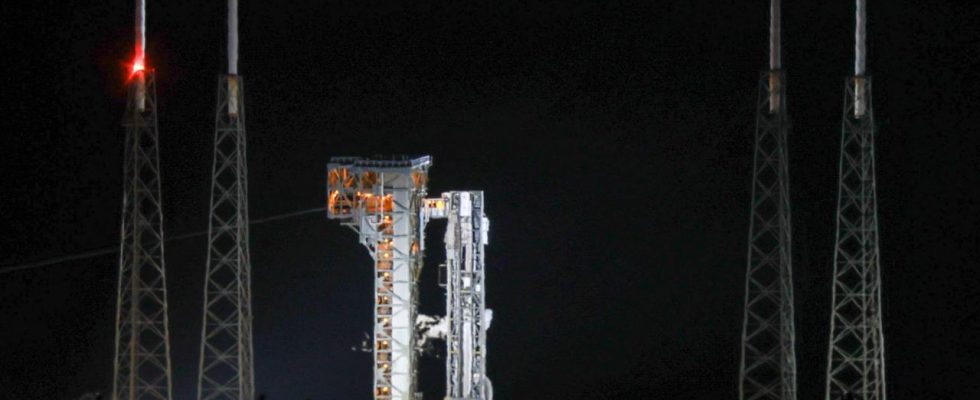The “Starliner” was supposed to transport astronauts long ago, but the project is far behind schedule. The first manned test flight had to be postponed again.
The highly anticipated launch of the first manned Boeing “Starliner” rocket into space has to be postponed by at least 24 hours due to technical problems.
The flight was aborted less than two hours before the countdown in the evening (local time) because a problem with a valve in the rocket’s second stage could not be fixed in time, NASA announced in its live stream.
The CST-200 “Starliner” was supposed to take off from the Kennedy Space Center of the US space agency NASA in Florida with an “Atlas V” rocket from the United Launch Alliance, a joint venture between Boeing and Lockheed Martin, and bring two astronauts to the International Space Station (ISS). .
The two NASA astronauts Barry Wilmore and Suni Williams left the “Starliner” capsule and returned to their crew quarters at the Cape Canaveral spaceport.
New start date still unclear
It was initially unclear how long it would take to fix the problem. A date for the next start attempt has not yet been set. For the arrival of the “Starliner”, the “Crew Dragon” that was docked there was moved to another docking station on the ISS.
In May 2022, the “Starliner,” developed and built by US aircraft manufacturer Boeing, completed a successful unmanned flight to the ISS for the first time and spent four days there – an important test for the spacecraft.
Prestige project for Boeing
Boeing is already facing intense public scrutiny and a major review of its quality control following a series of crises in commercial aviation. The company wanted to set a sign of success with the “Starliner”.
To save the program, which is years behind schedule, the planned costs have so far been exceeded by more than $1.5 billion. While Boeing is struggling with difficulties, Tesla founder Elon Musk’s SpaceX has become a reliable partner for the NAS for transport into space.

